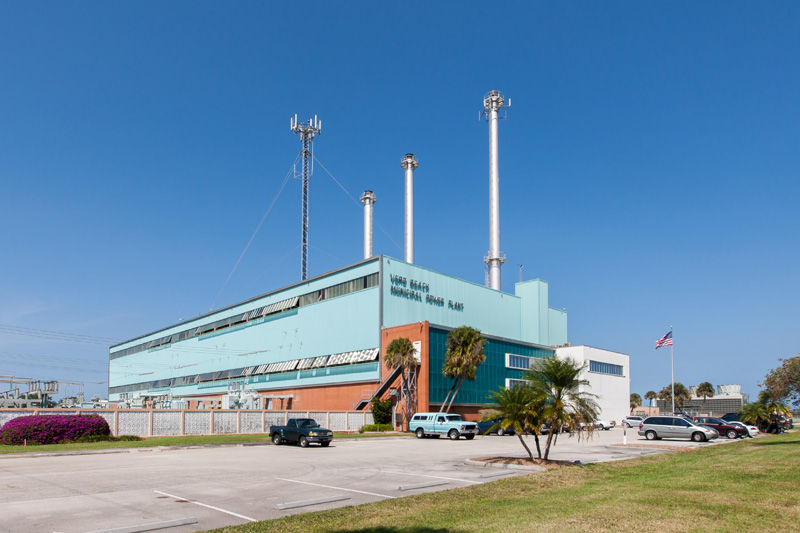Indian River Shores’ 30-year electric franchise with Vero Beach is set to end in about two months, but chances are fading that the Town will get any good news about breaking free from Vero’s grip before the Nov. 6 expiration.
The last glimmer of hope is that the Florida Public Service Commission will rule in the Shores’ favor on Sept. 13.
Public Service Commission Chair Julie Brown in July declined to rule on the Shores’ petition to have Vero’s electric territory opened up for review, saying then that the parties needed more time to sort out an amicable solution.
With the rejection by the majority of the Vero Beach City Council of Florida Power & Light’s latest offer of $30 million to purchase the Shores portion of the Vero system, attorney Bruce May and his team from Holland and Knight now have no choice but to argue the Town’s case before the state utility regulators in Tallahassee.
Regardless of the outcome of that hearing, Mayor Brian Barefoot has called a meeting in the Town’s Community Center at 2 p.m. on Sept. 22 to bring concerned residents up to speed on all the latest developments.
“FPL’s [$30 million] offer lapsed today. The city (Vero) has missed a tremendous opportunity,” Barefoot said at last Thursday’s council meeting.
The now-expired offer by FPL more than doubled the utility giant’s previous offer of $13.4 million, but it still fell short of the $47 million Vero officials said they need to make other utility ratepayers “whole” for a period of 30 to 50 years after the Shores’ exit from the system. A majority of the Vero council led by Mayor Jay Kramer wanted Shores residents to pony up $20 million on top of FPL’s $30 million to bridge the gap. That killed the deal.
Vero’s demand was not, Barefoot said, in the spirit of finding a negotiated solution, as the parties were urged to do by the regulators who now hold the Shores’ fate in their hands. “It was disappointing not only to us, but also to the PSC chair,” Barefoot said.
Should the Town not prevail at the PSC, Barefoot said he sees the matter being appealed to the Florida Supreme Court. At the last Vero City Council meeting, Vice Mayor Jerry Weick told council members the dispute might end up being resolved in federal court under antitrust provisions should the Shores not be able to get a redress of the Town’s home-rule rights via the PSC’s process.
The Shores Town Council is scheduled to meet in a “shade” session to discuss legal strategy just prior to the Sept. 22 town hall meeting, and the regular monthly meeting of the Shores Town Council is set for 3:30 p.m. that same day, with the final budget hearing to follow at 5:01 p.m. as it’s required by law to commence after 5 p.m. to give residents who work a chance to attend and weigh in on planned town expenditures.
Barefoot said he wants to brief Shores’ residents about why the legal bills are mounting, as Shores residents not only pay their own attorneys directly, they also indirectly pay Vero’s attorneys fighting against them as all those legal fees are charged to the electric utility and passed on to electric customers.
“I think everybody needs to be brought up to date,” Barefoot said.
In a statement released Monday to residents, Barefoot summarized the Town’s legal argument. “Our complaint is straightforward. Under the pretense of a territorial agreement, Vero Beach is operating an unregulated monopoly in Indian River Shores, and is subjecting its captive customers in our Town to monopoly abuses such as excessive rates and poor service quality,” Barefoot said.
“It is our strong belief that Article VIII, Section 2 (c) of Florida’s Constitution forbids the City from unilaterally exercising unregulated monopoly powers within our Town’s municipal boundaries after our franchise agreement with the City expires in November,” he continued.
Bruce May and his team have asked the PSC to crack open the borders of Vero’s long-standing territory on account of “changed circumstances” as the franchise agreement is expiring, the Town no longer wishes to grant Vero permission to operate within its borders, and 20 percent of Shores residents are already served by FPL.
Municipal utilities are not regulated by the PSC in the same way that investor-owned utilities like FPL are scrutinized for every proposed rate increase, but the PSC awards the geographic territory in which the municipal utility can serve.

